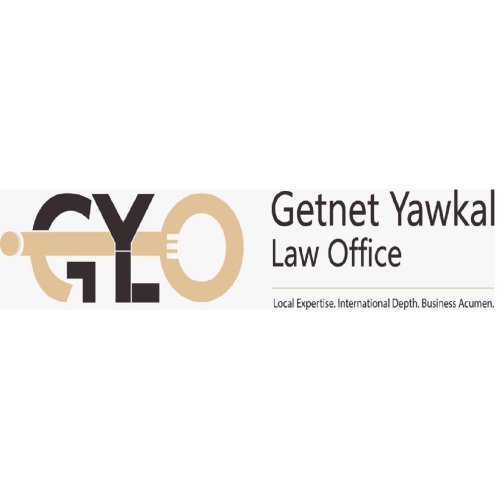Best Nonprofit & Charitable Organizations Lawyers in Ethiopia
Share your needs with us, get contacted by law firms.
Free. Takes 2 min.
Or refine your search by selecting a city:
List of the best lawyers in Ethiopia
About Nonprofit & Charitable Organizations Law in Ethiopia
Nonprofit and charitable organizations in Ethiopia operate under a framework that is guided by a combination of national legislation and international standards. The key legislative body governing these organizations is the Agency for Civil Society Organizations (ACSO), which was established under the Proclamation No. 1113/2019. This proclamation sets the legal context for the establishment, registration, and operation of nonprofit entities, which include charities, societies, and other similar organizations. Ethiopia's nonprofit legal framework focuses on ensuring that these organizations contribute to social development while maintaining transparency and accountability.
Why You May Need a Lawyer
Engaging with the nonprofit sector in Ethiopia can be complex, with several legal and regulatory intricacies involved. You may need a lawyer in the following situations:
- Establishing a new nonprofit or charitable organization, including navigating the registration process with ACSO.
- Ensuring compliance with local laws, including financial reporting and governance standards.
- Handling legal disputes involving donors, beneficiaries, or government bodies.
- Modifying the objectives or statutes of the organization in alignment with legal requirements.
- Terminating a nonprofit organization and managing the resolution of its financial and legal obligations.
Local Laws Overview
The legal framework for nonprofits in Ethiopia is primarily outlined in the Civil Society Organizations Proclamation (Proclamation No. 1113/2019). Key aspects of this law include:
- Registration: All nonprofits must register with the ACSO for legal recognition.
- Governance: Nonprofits are required to comply with strict governance policies, including the appointment of a governing board.
- Financial Transparency: Regular financial reporting is mandatory to ensure transparency and accountability.
- Permitted Activities: Nonprofits must operate within the objectives stated in their registration documents and are subject to restrictions on their activities, particularly in political matters.
- Foreign Funding: There are specific rules governing the receipt and use of foreign funds to prevent undue external influence.
Frequently Asked Questions
1. What is the process of registering a nonprofit organization in Ethiopia?
The process involves preparing the necessary documentation such as statutes and objectives, submitting them to the ACSO, and adhering to their requirements for legal establishment and operation.
2. Are there any restrictions on the activities of nonprofit organizations in Ethiopia?
Yes, activities must align with the stated objectives during registration, and there are prohibitions against engaging in political activities unless registered as advocacy-focused entities.
3. Can a foreign nonprofit operate in Ethiopia?
Yes, but they must comply with Ethiopian laws and often need to partner with local organizations or register themselves under ACSO to perform activities.
4. How does the Ethiopian government oversee nonprofit organizations?
The ACSO is responsible for overseeing, guiding, and ensuring compliance with policies and regulations governing nonprofits.
5. What reporting requirements must a nonprofit organization comply with?
Nonprofits must submit regular financial reports and demonstrate operational transparency to satisfy legal oversight requirements.
6. Is it possible to amend the objectives of a nonprofit after registration?
Yes, amendments can be made but they require approval from the ACSO, often involving the submission of revised statutes.
7. What role does the board of directors play in a nonprofit?
The board of directors is crucial in governance, ensuring the organization meets legal obligations and aligns with its mission.
8. Can a local nonprofit receive international funding?
Yes, but must comply with regulations regarding disclosure and use of foreign funds to ensure transparency and accountability.
9. What happens if a nonprofit organization fails to comply with local laws?
Noncompliance can result in penalties, fines, and potentially the revocation of the organization's registration.
10. How are disputes involving nonprofits typically resolved?
Disputes may be resolved through mediation, arbitration, or within the judicial framework, depending on their nature.
Additional Resources
For those seeking further information or assistance, the following resources may be helpful:
- Agency for Civil Society Organizations (ACSO): The primary regulatory body governing nonprofit operations.
- Ethiopian Legal Institutions: Legal resources providing comprehensive guides and legal aid for nonprofits.
- Local Law Firms: Specialized legal services offering guidance and representation in nonprofit law.
- International NGOs and Networks: Information exchanges and collaborations for sharing best practices and legal advice.
Next Steps
If you require legal assistance in the nonprofit and charitable sector, consider the following steps:
- Contact a lawyer experienced in Ethiopian nonprofit law to gain insights and guidance tailored to your specific situation.
- Utilize additional resources such as ACSO for regulatory guidance and support in your legal processes.
- Prepare necessary documentation, including required legal, financial, and operational records, for consultations or legal procedures.
- Engage with local and international networks to understand broader practices and insights applicable to your organization.
Lawzana helps you find the best lawyers and law firms in Ethiopia through a curated and pre-screened list of qualified legal professionals. Our platform offers rankings and detailed profiles of attorneys and law firms, allowing you to compare based on practice areas, including Nonprofit & Charitable Organizations, experience, and client feedback.
Each profile includes a description of the firm's areas of practice, client reviews, team members and partners, year of establishment, spoken languages, office locations, contact information, social media presence, and any published articles or resources. Most firms on our platform speak English and are experienced in both local and international legal matters.
Get a quote from top-rated law firms in Ethiopia — quickly, securely, and without unnecessary hassle.
Disclaimer:
The information provided on this page is for general informational purposes only and does not constitute legal advice. While we strive to ensure the accuracy and relevance of the content, legal information may change over time, and interpretations of the law can vary. You should always consult with a qualified legal professional for advice specific to your situation.
We disclaim all liability for actions taken or not taken based on the content of this page. If you believe any information is incorrect or outdated, please contact us, and we will review and update it where appropriate.
Browse nonprofit & charitable organizations law firms by city in Ethiopia
Refine your search by selecting a city.

















